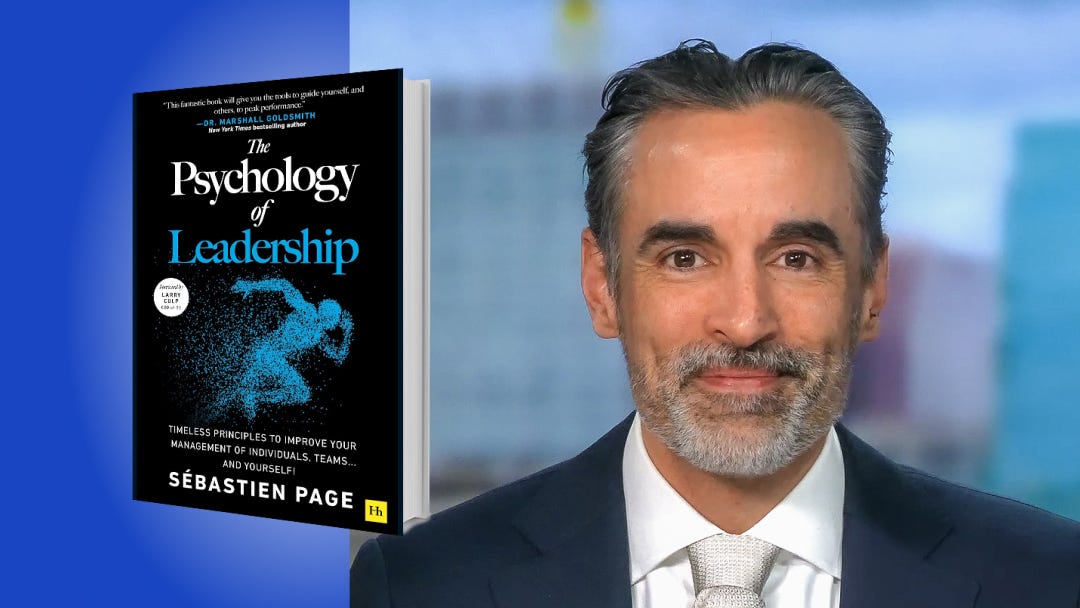Want to Be a Better Leader? Be Less Decisive.
Billionaires make bad role models. Stress can boost performance. Indecision is a strategy. A new book might just change the way you lead—and live.
In the high-stakes world of finance, Sébastien Page has made a career out of smart decisions. As the Chief Investment Officer at T. Rowe Price, he oversees more than half a trillion dollars in assets. But when it came to writing a book about leadership, he didn’t just rely on spreadsheets and strategy—he brought in principles from sports psychology to help decode the mental game behind high performance.
In The Psychology of Leadership, Sébastien delivers a playbook that challenges conventional wisdom. Should leaders be more decisive? Not always. Should you chase measurable goals? Be careful—they might just blind you. From rethinking stress to choosing better role models, this is a radically honest guide to leading with clarity, resilience, and ethical strength. Check out five of his key insights below:
1. Measurable goals are dangerous.
Let me ask you an uncomfortable question: what would it take for someone to convince you to put a gun to your head and play Russian roulette? Suppose the hypothetical gun had one hundred chambers and was loaded with four bullets. You’d have a four percent chance of dying. How big would the reward have to be for you to spin the chamber and press the trigger? Would you do it for a million dollars? Ten million? One hundred million?
Click!
If you’ve reached the summit of Everest, I admire and respect you. At the same time, let me ask you: why? There’s an area called the Death Zone where you climb over frozen dead bodies to reach the summit. Over the last 30 years, four of every 100 climbers who have summited have died—hence my Russian roulette question.
Reaching the summit of Everest may be an irresistible goal because it’s a challenging and prestigious achievement. More than anything else, it’s a well-defined, measurable goal. You either reach the summit or you don’t.
Research in psychology reveals that goal-induced blindness, which happens when you’re so obsessed with reaching a goal that you don’t see the negative consequences of your actions, leads people to sacrifice their well-being or lie and cheat.
Measurable goals are essential in leadership and life, but they’re also dangerous. Prevent goal-induced blindness by prioritizing well-being and ethics. Know when to abandon the climb.




